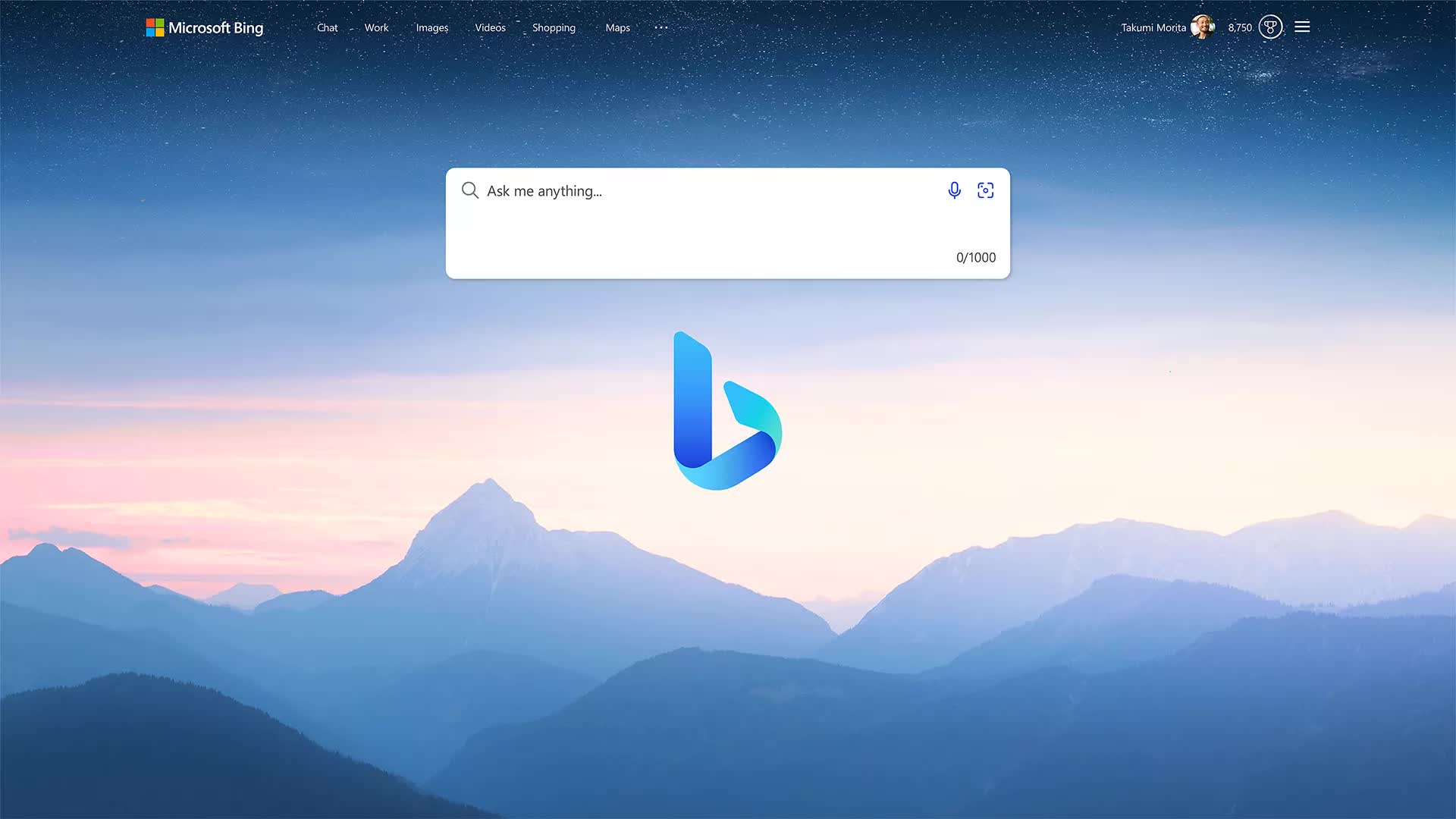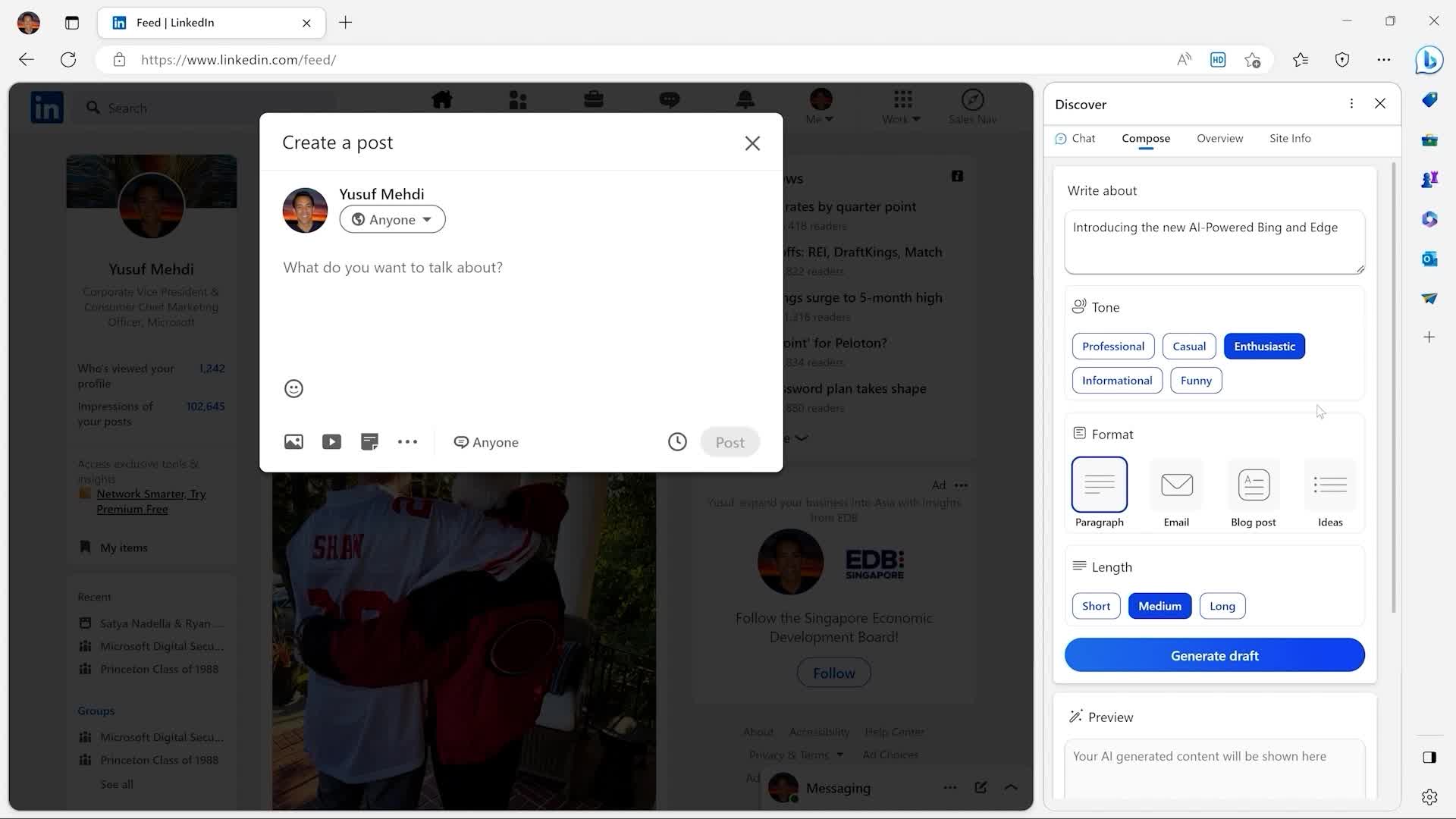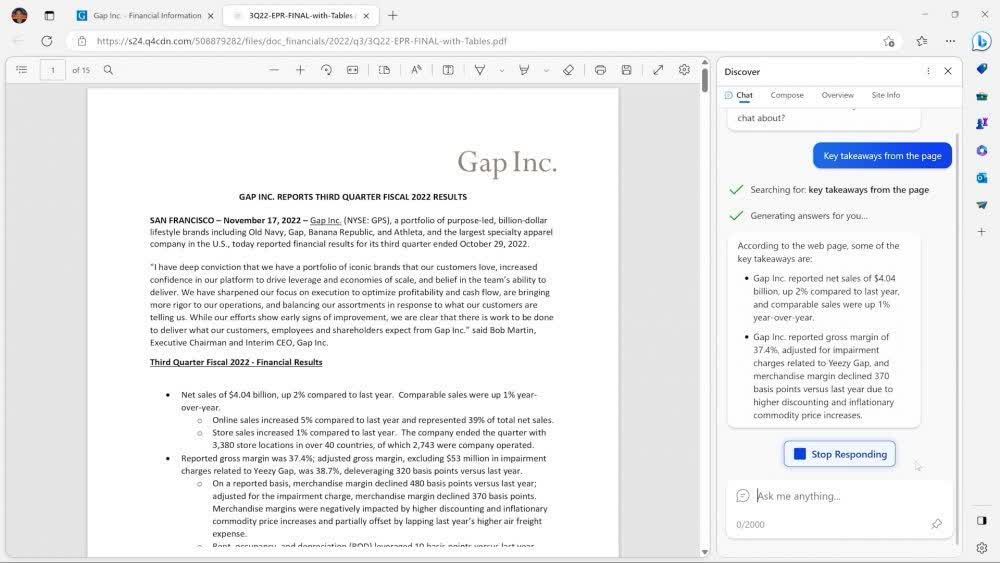What just happened? As expected, Microsoft has announced a new iteration of its Bing search engine powered by a version of the same AI behind ChatGPT. During an event at its Redmond, Washington, headquarters, the firm also said it is updating the Edge browser with new AI capabilities and a new look.
Bing has been around for 13 years now, yet it still holds a lowly 3% share of the browser market while Google sits at about 93%, but Microsoft believes integrating OpenAI's GPT-4 model into its search engine will help close that massive gap. "It's a new day in search," said CEO Satya Nadella.
The new Bing is available to try now in a limited version on desktop—you can join a waitlist for the full thing. The search engine shows results in their traditional form alongside an AI-powered sidebar containing more comprehensive answers. Users can also ask the chatbot questions directly, much like ChatGPT.
Microsoft says the new Bing provides more relevant results, can summarize them from multiple sources, and is able to refine answers. It's also able to create a vacation itinerary, prepare users for job interviews, retrieve news about recent events, and much more.
Some other examples of what the new Bing can do include finding detailed instructions for how to substitute eggs for another ingredient in a cake you are baking right at that moment, without scrolling through multiple results. Microsoft also demoed Bing creating an itinerary for each day of a five-day trip to Mexico City.
The updated Edge browser, meanwhile, comes with new Chat and Compose features. The former lets users summarize web pages and ask questions about their contents, while the latter helps generate the likes of emails and social media posts.
Microsoft is using an upgraded version of the GPT 3.5 language model that powers OpenAI's ChatGPT in the new Bing and Edge. The company says this "Prometheus" model is more powerful than the famous chatbot and is better able to answer search queries.
The chatbot revolution continues today when Google reveals more details of its rival AI tool, Bard, during its Live from Paris event, starting at 8:30 am ET / 5:30 am PT. Chinese search giant Baidu is also releasing its own ChatGPT-style service, called Ernie, in March.
https://www.techspot.com/news/97532-microsoft-announces-new-chatgpt-powered-bing-engine-edge.html


